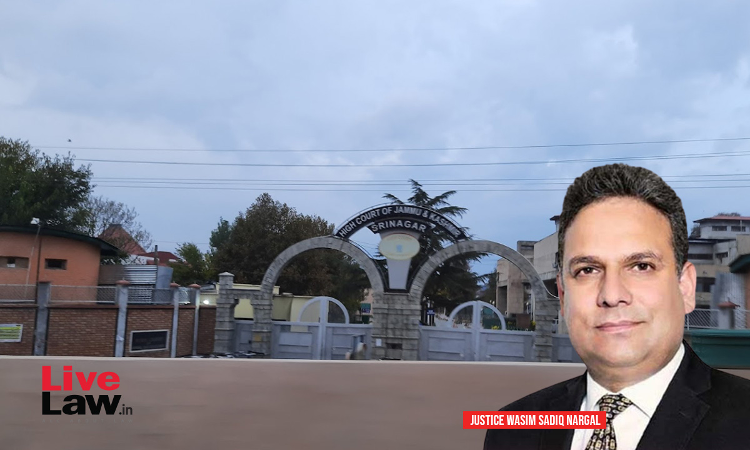- Home
- /
- High Courts
- /
- High Court of J & K and Ladakh
- /
- Two Adults Choosing Each Other In...
Two Adults Choosing Each Other In Marriage Is A Constitutional Right, Consent Of Family Or Clan Not Necessary: J&K High Court
LIVELAW NEWS NETWORK
24 April 2025 12:05 PM IST
Reinforcing individual autonomy and constitutional liberties, the High Court of Jammu and Kashmir and Ladakh, while disposing of a protection plea filed by a young married couple, ruled that two adults choosing each other in marriage is a constitutional right, not subject to family or community approval.Reiterating the supremacy of personal liberty and dignity under Articles 19 and 21 of...
Reinforcing individual autonomy and constitutional liberties, the High Court of Jammu and Kashmir and Ladakh, while disposing of a protection plea filed by a young married couple, ruled that two adults choosing each other in marriage is a constitutional right, not subject to family or community approval.
Reiterating the supremacy of personal liberty and dignity under Articles 19 and 21 of the Indian Constitution a bench of Justice Wasim Sadiq Nargal observed,
“When two adults, consensually, choose each other as life partners, it is manifestation of their choice that is recognized under Articles 19 and 21 of the Constitution. Such right has sanction of constitutional law and once that is recognized, said right needs to be protected and it cannot succumb to conception of class, honour or group thinking. Consent of family or community or clan is not necessary”
These observations came in a writ petition filed by a lady and her husband, both of whom claimed to be majors and legally married under Hindu rites and customs. The couple sought protection from law enforcement authorities, expressing apprehensions of physical harm and harassment by their families, who disapproved of their marriage.
Represented by Advocate Mr. Dinesh Sharma, the petitioners pleaded for state protection to safeguard their life and liberty. On the other side, the Union Territory of J&K was represented by Senior Additional Advocate General Mrs. Monika Kohli.
In a profound and constitutionally anchored order Justice Nargal acknowledged the constitutional guarantee of personal liberty, emphasizing,
“When two adults marry out of their volition, they choose their path; they consummate their relationship; they feel that it is their goal and they have the right to do so. And it can unequivocally be stated that they have the right and any infringement of the said right is a constitutional violation”
He underlined that this right must be zealously protected by Constitutional Courts, and any attempt to obstruct such a choice whether by family, community, or society is a direct violation of fundamental rights.
“It is the obligation of the Constitutional Courts as the sentinel on qui vive to zealously guard the right to liberty of an individual as dignified existence of an individual has an inseparable association with liberty. Thus, it is emphatically clear that life and liberty sans dignity and choice is a phenomenon that allows hollowness to enter into the constitutional recognition of identity of a person”, the court underscored.
Spotlighting the primacy of choice of an individual as an extricable part of dignity, Justice Nargal accentuated that dignity cannot be thought of where there is erosion of choice and no one shall be permitted to interfere in the fructification of the said choice. If right to express one's own choice is obstructed, it would be extremely difficult to think of dignity in its sanctified completeness, he reasoned.
In view of the above, the Court directed the official respondents to verify whether the petitioners are majors and whether their marriage has been solemnized in accordance with existing laws, provide adequate protection to the petitioners if the verification is positive and proceed with any existing criminal investigations, if applicable, without interfering with the couple's liberty.
The Court, however, clarified that this order does not authenticate the validity of the marriage or age of the petitioners, which are subject to verification as per prevailing laws.
Case Title: Anamika Devi Vs UT Of J&K
Citation: 2025 LiveLaw (JKL) 160



